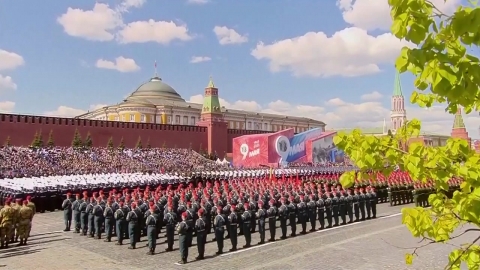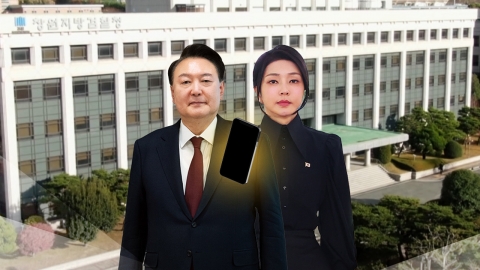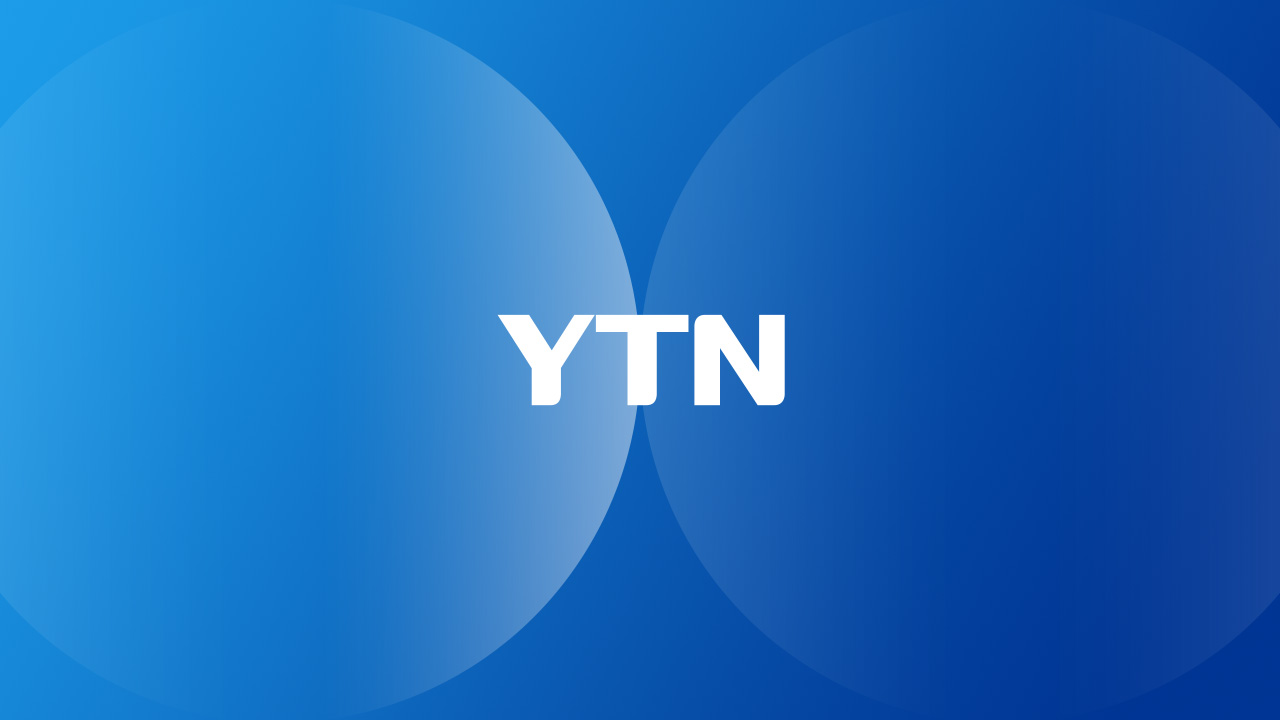Chaebol Dreaming of Succession of Management Rights With Tiny Stakes, Why It's Inevitable to Succession of Explicitly
이미지 확대 보기

■ Broadcast: YTN Radio FM 94.5 (09:00-10:00)
■ Host: Reporter Cho Tae-hyun
■ Air date: December 24, 2024 (Tuesday)
■ Dialogue: Park Joo-geun, CEO of Leaders Index
* The text below may differ from the actual broadcast content, so please check the broadcast for more accurate information.
■ Host: Reporter Cho Tae-hyun
■ Air date: December 24, 2024 (Tuesday)
■ Dialogue: Park Joo-geun, CEO of Leaders Index
* The text below may differ from the actual broadcast content, so please check the broadcast for more accurate information.
◆ Reporter Cho Tae-hyun (hereinafter referred to as Cho Tae-hyun): Let's continue with YTN Radio Live Economy Part 2. This time, we would like to talk about the amendment to the commercial law. The Democratic Party of Korea is in a position to deal with the content of expanding the subject of directors' duty of loyalty to all shareholders. The business community is actively opposing it. For related information, we will talk with Park Joo-geun, CEO of Leaders Index. Welcome, CEO.
◇ Park Joo-geun, CEO of Leaders Index (hereinafter referred to as Park Joo-geun): Yes, hello.
◆ Cho Tae-hyun: How is your end of the year going? It's chaotic, but if you look at it these days, it doesn't feel like the end of the year and the domestic demand is so bad. I think you should at least spend it hard, but there's a lot of talk about value-up this year. The so-called "Let's solve the Korea discount" value-up kept being talked about, but if you look at your report card so far, how many credits will you give?
◇ Park Joo-geun: I've talked about C. Value-up a few times here, but everyone knew about it. So, the essential issue of the Korea discount will be discussed today, but the governance structure and so on, and most of the government's policies for a year have been unexpected. So, you have to increase the essential value of a company, but rather, you have to pay a lot of superficial dividends and buy treasury stocks and spend the money quickly. Investors all know. I think the biggest reason was that I didn't know what was wrong with value-up.
◆ Cho Tae-hyun: You told me to pee on my frozen feet, but if I tell you about my personal impressions, I think I couldn't even melt my frozen feet properly. In such a situation, as you just said, the amendment to the commercial law is becoming controversial again. The Democratic Party will handle this early next year even if it's not this year. You are expressing this position, what is the content of the final amendment to the Commercial Law?
◇ Park Joo-geun: The core of the amendment to the Commercial Act is the story of Article 382 (3) of the Commercial Act. So, the current situation is that directors must faithfully perform their duties for the company. The core of the amendment to the Commercial Act is to include a sentence saying that directors should do it not only for the company but also for shareholders, and then there are various proposals on how far to look at shareholders. Even within the Democratic Party of Korea, the three proposed a bill, but first, when lawmaker Jung Joon-ho proposed it in June, he added the words "proportionate profits of shareholders and the company." So, the largest shareholders and general shareholders, so the people with a lot of power enjoy a lot of power, and the people with less power enjoy a lot of power. And Kang Hoon-sik, a lawmaker of the Democratic Party of Korea, added the word "the interests of the company and shareholders," and in the case of Park Joo-min, all shareholders of the company and the total shareholders. The decision is slightly different, but in conclusion, in Article 382(3), directors have only been obligated to be faithful to the company so far, but now let's enact it into law, asking them to do only the duty of loyalty for shareholders for shareholders.
◆ Cho Tae-hyun: Well, since the owner of a company is a shareholder, I think this part of course should be there. On the contrary, there are many voices of opposition, and as you said, how to view the scope of shareholders seems to be a little controversial, but is there anything you are concerned about when you say that all shareholders are considered?
◇ [Park Joo-geun] Like this, for example. Under the current law, shareholder representative lawsuits under the Commercial Act, responsibility for third parties, and breach of trust under the criminal law for the management of board directors have not been controversial, but the moment the word "shareholder" is added, it comes to the surface. So basically, when directors make a decision, there's a judicial risk. To give you a few examples, aren't you working hard on building Hyundai Motor's headquarters in Samseong-dong? When I bought the Hyundai Motor office building, I paid 10.4 trillion won for the KEPCO site. Hyundai Motor Company and Hyundai Mobis and Hyundai Steel are all listed companies that paid 10.4 trillion won. If there were shareholders in the commercial law at that time, the possibility of breach of trust would increase considerably. And the problem of Doosan Robotics and Doosan Bobcat division, which we've covered a lot recently, is that directors are obligated to be faithful to the company under commercial law, so we're done when we say, "We've decided this for the company's benefit," but if shareholders go in here, shareholders won't stay put. So the first concern is that the business community has been exposed to all judicial risks about these things. There is a lot of controversy over the breach of trust, so if that happens, business people, not the business community, don't they always invest in certain things? We have to invest in uncertain things and do the future value or investment activities of the company, but if that happens, it shrinks and who will invest in the company? And the third reason is that if this happens, we still have a lot of management disputes ahead of the general shareholders' meeting season in March, and the main concern is that if the law is passed, foreign investors, especially those with wings, will have more management disputes.
◆ Cho Tae-hyun: Yes, if you actually have those concerns, it's not necessarily bad that the owner's management or something like that. If you had those concerns, there would have been no semiconductors, no shipbuilding, and no cars in Korea. In that sense, both sides seem to have some sense. In any case, these things are included. Then, we can prevent things like LG Chem's physical division and LG Ensolvasion, right?
◇ Park Chu-geun: That's right. It's been about 20 years since the biggest debate of this Korea discount took place. It's happened since the 2000s. But that's the biggest reason why it happened at that time. So, in the process of freely taking off and attaching companies under the name of business restructuring, most of these results were in the interests of the largest shareholders. In the end, the largest shareholder profits only one side, and individual investors have no information because they have to go to strengthening management rights through human division and division and merger. It is said that Korea's capital market itself is a forest fire because it has a one-sided loss structure. So, I think the Korean capital market has to deal with this part, but if I don't deal with it again this time, I think the golden time will pass. Because the core of the problem is that as Korea's governance structure goes down in the first, second, and third generations, the value of the company is getting bigger and bigger, so these owners owned all their shares in the first generation, but as the generation increased and the size of the company grew, they couldn't take all the shares. As soon as you take it all, you have to pay too much inheritance tax or something like that, so what kind of interest rate betrayal happens is that you have to minimize your stake and press it. I have to hand it over to my children at a low price, but I have to be so efficient and have all the authority. Like a first-generation founder back in the day. That's why they're falling into a betrayal of the interest rate. As a result, conflicts of interest between general shareholders are inevitable. So, what do we call the Korean capital market is that the naked chairman and investors who fell into $3 are currently the bare face of the Korean capital market.
◆ Cho Tae-hyun: What's in the third dollar?
◇ Park Joo-geun: First of all, distrust. And there's something like that without rules, so as we know, there was a really important signal in the Korean capital market last month. First, the coin market transaction amount surpassed the stock market transaction amount. This was a huge shock to those in the capital market. And the second is the MZ generation, which is rapidly exiting the U.S. market. These things are caused by these two causes. Then chairman, capitalism in Korea is called capitalism in foreign countries. So if you don't reform this, the rich can't go to the top three. So, if you try to maintain profits even in this situation where investment information is circulating freely through SNS and global funds are circulating on the contrary, in the end, a large number of MZ generations have already left the bureau. In the future, baby boomers are starting to retire from this procession, and there is no guarantee that they will not enter this act. This is the last golden time to catch them. So, whether it is a revision of the commercial law or any revision, the time has come to point out these parts.
◆ Cho Tae-hyun: If the times have changed, management and shareholders' behaviors will have to change a lot, but as you said, it is true that you still show a lot of things that remain in the past. There seems to be a problem that needs to be addressed in that respect. Nevertheless, the story from the business community has a point. To be sure, let's revise the Capital Markets Act. How is revising the Capital Markets Act different from revising the Commercial Act when we continue to come up with this kind of alternative?
◇ Park Joo-geun: The Capital Markets Act. This commercial law literally applies to all corporations. All corporations referred to as corporations are based on this commercial law. So we can create a corporation. Anyone can make it with very little money these days, but corporations basically have to follow the commercial law. Whether listed or unlisted, the Capital Markets Act only deals with listed companies. There's a blind spot here. So, the government also expressed its will to revise the commercial law until January this year, even though President Yoon Suk Yeol is impeached now. I said that while talking about value-up that individual investors should not lose money, of course, now that I think about it, it was because it was before the April general election. That was so noticeable. But now the government has completely turned it on, so it is to improve the capital market law, not products, but the content seems similar. So, the government calls this tweezers adjustment, and I think this is a problem. As I said before, the essential problem with this Korea discount is that in the end, it tries to continue to take over management with a small stake, so these various expedient methods are mobilized. Since the value of controlling shareholders is protected by their management rights through divisional restructuring, we have no choice but to mobilize unlisted companies. Representatively, if you talk about Hanwha Group, which is currently in progress, Hanwha Group is like that. Now, Vice Chairman Kim Dong-kwan, who is the third generation of Hanwha Group, is trying to take over the management rights. However, Hanwha Group has Hanwha Corporation at the top of its governance structure. It's a listed company. However, Vice Chairman Kim Dong-kwan or the three brothers only hold about 5% of Hanwha Co., Ltd. Then Chairman Kim Seung-yeon is still a major shareholder, so shouldn't he take over the management control? It's too expensive to just receive it as it is, and you have to pay a lot of taxes. So the method is that Hanwha Energy, an unlisted company, created something and the three brothers have a 100% stake. Then we need to grow this unlisted company. You can either buy a stake in Hanwha or merge the two companies with this money. However, when the commercial law is revised, these two problems arise.
◆ Cho Tae-hyun: That's right.
◇ Park Joo-geun: But the Capital Markets Act is not an unlisted company, so you can easily use many things. However, most chaebol companies and large corporations in Korea have passed the succession of management rights in this way. Samsung knows all about Everland. I've always used unlisted companies. Then, when the Capital Markets Act is changed, it seems that it can protect the rights and interests of individual shareholders, but it is still an untouchable bill for the fundamental core of the problem, governance. So, I think that there is a considerable difference between the capital market law and the commercial law.
◆ Cho Tae-hyun: So the management community says that the reason they oppose it now is because there is uncertainty in management, but shouldn't it be considered that there is some stability in the governance structure?
◇ Park Joo-geun: To put it simply, the week I have and the week that ordinary shareholders have is different. That's the basic mentality. Like that. The honest truth is that the week I've had is my week that I've spent my whole body on fire since my grandfather's age. The week I bought it with money can be the same. And it's based on this law that the week I have is much more valuable than the week that the average investor has. So don't take the week you have and think of the same week's exercise rights as mine. But this commercial law is the same. So you have to be the same to be shareholder capitalism. Then the way to do it is that you have a lot of money, so you can have more. Don't take 3% and 5% now, but take 20% to 30% and do the event. But that's what I don't like. Because taxes are going to be a problem. So the essential problem is this. It's a commercial law that balances this, but I think we need wisdom here. Last week, Democratic Party Chairman Lee Jae-myung presented this forum in the midst of his busy schedule.
◆ Cho Tae-hyun: Yes, yes. That's what they said.
◇ Park Joo-geun: There is a reason why the impeachment is so busy right now. So this is what the Democratic Party is like. This impeachment is so urgent, but the first thing I wanted to show is that we are also interested in the economy, and now, whether it is the Democratic Party or the ruling party, there are 14 million individual investors.
◆ Cho Tae-hyun: You can't ignore it.
◇ Park Joo-geun: It's all 14 million votes. Yes, I can't ignore it. We need to make some positive gestures against them, but the Democratic Party can also see some open nuance here. There are two things that the business community is most concerned about right now. I can't do this on the board. If we make a decision, we'll bet everything on breach of trust. I'm most concerned about how we're going to manage this. Second, the probability of foreign speculative capital coming in and stealing management rights will increase, so who's not afraid of this? Who would invest uncertainly? I expressed the nuance of protecting that part. So we're talking about some sort of hybrid form of legislation. I don't know how the conclusion will be made, but the Democratic Party says it is not the Capital Markets Act, and the government and the ruling party should replace it with the Capital Markets Act. That's why it's like this. The biggest strength of Korean companies is that the first and second generation owners have various criticisms anyway, but they somehow created the Korean economy. I'm sure they have their strengths. But the critic is, does the third generation have that spirit? Do third-generation people have such things? Does Korea's economy work even if we trust them and leave everything to them? There's a concern about that. Then, we need to supplement this with an institutional system, and at the same time, we need to create a device that needs to protect individual shareholders. That way, our capital market will come back.
◆ Cho Tae-hyun: The logic is clear even in the concerns of the business community, so I think we need to make sure to supplement it. As you said, the thing that kept coming out is the tax problem. If so, some argue that it is time to discuss this inheritance tax in order to improve the capital market, but what do you think about this, CEO?
◇ Park Joo-geun: The bill now has lowered the inheritance tax from 50% to 40%, and now the bill is over. It has become a relic, but in terms of inheritance tax, medium-sized companies, except for large companies, are now providing a lot of benefits. For example, since inheritance deductions and benefits are provided, I don't think it's fair to give such benefits to inheritance tax. So, it is said that Korea is nominally high, but in reality, if you look at the total tax, I don't think it is high. I think there is a little problem with raising such a thing while the national treasury continues to fall like this.
◆ Cho Tae-hyun: I think we need to make a comprehensive judgment on this as well. So far, I have pointed out various issues surrounding the amendment to the commercial law with Park Joo-geun, CEO of Leaders Index. Thank you for talking today.
◇ Park Joo-geun: Yes, thank you.
#SuccessionofManagement #CapitalMarketAct #CommercialAct #IndividualInvestor #Cospee #Cosdaq #HanwhaGroup #KimSeungYeon #ShareholderProtection #ValueUp #Stock #Coin #U.S.Stock #Director
◇ Park Joo-geun, CEO of Leaders Index (hereinafter referred to as Park Joo-geun): Yes, hello.
◆ Cho Tae-hyun: How is your end of the year going? It's chaotic, but if you look at it these days, it doesn't feel like the end of the year and the domestic demand is so bad. I think you should at least spend it hard, but there's a lot of talk about value-up this year. The so-called "Let's solve the Korea discount" value-up kept being talked about, but if you look at your report card so far, how many credits will you give?
◇ Park Joo-geun: I've talked about C. Value-up a few times here, but everyone knew about it. So, the essential issue of the Korea discount will be discussed today, but the governance structure and so on, and most of the government's policies for a year have been unexpected. So, you have to increase the essential value of a company, but rather, you have to pay a lot of superficial dividends and buy treasury stocks and spend the money quickly. Investors all know. I think the biggest reason was that I didn't know what was wrong with value-up.
◆ Cho Tae-hyun: You told me to pee on my frozen feet, but if I tell you about my personal impressions, I think I couldn't even melt my frozen feet properly. In such a situation, as you just said, the amendment to the commercial law is becoming controversial again. The Democratic Party will handle this early next year even if it's not this year. You are expressing this position, what is the content of the final amendment to the Commercial Law?
◇ Park Joo-geun: The core of the amendment to the Commercial Act is the story of Article 382 (3) of the Commercial Act. So, the current situation is that directors must faithfully perform their duties for the company. The core of the amendment to the Commercial Act is to include a sentence saying that directors should do it not only for the company but also for shareholders, and then there are various proposals on how far to look at shareholders. Even within the Democratic Party of Korea, the three proposed a bill, but first, when lawmaker Jung Joon-ho proposed it in June, he added the words "proportionate profits of shareholders and the company." So, the largest shareholders and general shareholders, so the people with a lot of power enjoy a lot of power, and the people with less power enjoy a lot of power. And Kang Hoon-sik, a lawmaker of the Democratic Party of Korea, added the word "the interests of the company and shareholders," and in the case of Park Joo-min, all shareholders of the company and the total shareholders. The decision is slightly different, but in conclusion, in Article 382(3), directors have only been obligated to be faithful to the company so far, but now let's enact it into law, asking them to do only the duty of loyalty for shareholders for shareholders.
◆ Cho Tae-hyun: Well, since the owner of a company is a shareholder, I think this part of course should be there. On the contrary, there are many voices of opposition, and as you said, how to view the scope of shareholders seems to be a little controversial, but is there anything you are concerned about when you say that all shareholders are considered?
◇ [Park Joo-geun] Like this, for example. Under the current law, shareholder representative lawsuits under the Commercial Act, responsibility for third parties, and breach of trust under the criminal law for the management of board directors have not been controversial, but the moment the word "shareholder" is added, it comes to the surface. So basically, when directors make a decision, there's a judicial risk. To give you a few examples, aren't you working hard on building Hyundai Motor's headquarters in Samseong-dong? When I bought the Hyundai Motor office building, I paid 10.4 trillion won for the KEPCO site. Hyundai Motor Company and Hyundai Mobis and Hyundai Steel are all listed companies that paid 10.4 trillion won. If there were shareholders in the commercial law at that time, the possibility of breach of trust would increase considerably. And the problem of Doosan Robotics and Doosan Bobcat division, which we've covered a lot recently, is that directors are obligated to be faithful to the company under commercial law, so we're done when we say, "We've decided this for the company's benefit," but if shareholders go in here, shareholders won't stay put. So the first concern is that the business community has been exposed to all judicial risks about these things. There is a lot of controversy over the breach of trust, so if that happens, business people, not the business community, don't they always invest in certain things? We have to invest in uncertain things and do the future value or investment activities of the company, but if that happens, it shrinks and who will invest in the company? And the third reason is that if this happens, we still have a lot of management disputes ahead of the general shareholders' meeting season in March, and the main concern is that if the law is passed, foreign investors, especially those with wings, will have more management disputes.
◆ Cho Tae-hyun: Yes, if you actually have those concerns, it's not necessarily bad that the owner's management or something like that. If you had those concerns, there would have been no semiconductors, no shipbuilding, and no cars in Korea. In that sense, both sides seem to have some sense. In any case, these things are included. Then, we can prevent things like LG Chem's physical division and LG Ensolvasion, right?
◇ Park Chu-geun: That's right. It's been about 20 years since the biggest debate of this Korea discount took place. It's happened since the 2000s. But that's the biggest reason why it happened at that time. So, in the process of freely taking off and attaching companies under the name of business restructuring, most of these results were in the interests of the largest shareholders. In the end, the largest shareholder profits only one side, and individual investors have no information because they have to go to strengthening management rights through human division and division and merger. It is said that Korea's capital market itself is a forest fire because it has a one-sided loss structure. So, I think the Korean capital market has to deal with this part, but if I don't deal with it again this time, I think the golden time will pass. Because the core of the problem is that as Korea's governance structure goes down in the first, second, and third generations, the value of the company is getting bigger and bigger, so these owners owned all their shares in the first generation, but as the generation increased and the size of the company grew, they couldn't take all the shares. As soon as you take it all, you have to pay too much inheritance tax or something like that, so what kind of interest rate betrayal happens is that you have to minimize your stake and press it. I have to hand it over to my children at a low price, but I have to be so efficient and have all the authority. Like a first-generation founder back in the day. That's why they're falling into a betrayal of the interest rate. As a result, conflicts of interest between general shareholders are inevitable. So, what do we call the Korean capital market is that the naked chairman and investors who fell into $3 are currently the bare face of the Korean capital market.
◆ Cho Tae-hyun: What's in the third dollar?
◇ Park Joo-geun: First of all, distrust. And there's something like that without rules, so as we know, there was a really important signal in the Korean capital market last month. First, the coin market transaction amount surpassed the stock market transaction amount. This was a huge shock to those in the capital market. And the second is the MZ generation, which is rapidly exiting the U.S. market. These things are caused by these two causes. Then chairman, capitalism in Korea is called capitalism in foreign countries. So if you don't reform this, the rich can't go to the top three. So, if you try to maintain profits even in this situation where investment information is circulating freely through SNS and global funds are circulating on the contrary, in the end, a large number of MZ generations have already left the bureau. In the future, baby boomers are starting to retire from this procession, and there is no guarantee that they will not enter this act. This is the last golden time to catch them. So, whether it is a revision of the commercial law or any revision, the time has come to point out these parts.
◆ Cho Tae-hyun: If the times have changed, management and shareholders' behaviors will have to change a lot, but as you said, it is true that you still show a lot of things that remain in the past. There seems to be a problem that needs to be addressed in that respect. Nevertheless, the story from the business community has a point. To be sure, let's revise the Capital Markets Act. How is revising the Capital Markets Act different from revising the Commercial Act when we continue to come up with this kind of alternative?
◇ Park Joo-geun: The Capital Markets Act. This commercial law literally applies to all corporations. All corporations referred to as corporations are based on this commercial law. So we can create a corporation. Anyone can make it with very little money these days, but corporations basically have to follow the commercial law. Whether listed or unlisted, the Capital Markets Act only deals with listed companies. There's a blind spot here. So, the government also expressed its will to revise the commercial law until January this year, even though President Yoon Suk Yeol is impeached now. I said that while talking about value-up that individual investors should not lose money, of course, now that I think about it, it was because it was before the April general election. That was so noticeable. But now the government has completely turned it on, so it is to improve the capital market law, not products, but the content seems similar. So, the government calls this tweezers adjustment, and I think this is a problem. As I said before, the essential problem with this Korea discount is that in the end, it tries to continue to take over management with a small stake, so these various expedient methods are mobilized. Since the value of controlling shareholders is protected by their management rights through divisional restructuring, we have no choice but to mobilize unlisted companies. Representatively, if you talk about Hanwha Group, which is currently in progress, Hanwha Group is like that. Now, Vice Chairman Kim Dong-kwan, who is the third generation of Hanwha Group, is trying to take over the management rights. However, Hanwha Group has Hanwha Corporation at the top of its governance structure. It's a listed company. However, Vice Chairman Kim Dong-kwan or the three brothers only hold about 5% of Hanwha Co., Ltd. Then Chairman Kim Seung-yeon is still a major shareholder, so shouldn't he take over the management control? It's too expensive to just receive it as it is, and you have to pay a lot of taxes. So the method is that Hanwha Energy, an unlisted company, created something and the three brothers have a 100% stake. Then we need to grow this unlisted company. You can either buy a stake in Hanwha or merge the two companies with this money. However, when the commercial law is revised, these two problems arise.
◆ Cho Tae-hyun: That's right.
◇ Park Joo-geun: But the Capital Markets Act is not an unlisted company, so you can easily use many things. However, most chaebol companies and large corporations in Korea have passed the succession of management rights in this way. Samsung knows all about Everland. I've always used unlisted companies. Then, when the Capital Markets Act is changed, it seems that it can protect the rights and interests of individual shareholders, but it is still an untouchable bill for the fundamental core of the problem, governance. So, I think that there is a considerable difference between the capital market law and the commercial law.
◆ Cho Tae-hyun: So the management community says that the reason they oppose it now is because there is uncertainty in management, but shouldn't it be considered that there is some stability in the governance structure?
◇ Park Joo-geun: To put it simply, the week I have and the week that ordinary shareholders have is different. That's the basic mentality. Like that. The honest truth is that the week I've had is my week that I've spent my whole body on fire since my grandfather's age. The week I bought it with money can be the same. And it's based on this law that the week I have is much more valuable than the week that the average investor has. So don't take the week you have and think of the same week's exercise rights as mine. But this commercial law is the same. So you have to be the same to be shareholder capitalism. Then the way to do it is that you have a lot of money, so you can have more. Don't take 3% and 5% now, but take 20% to 30% and do the event. But that's what I don't like. Because taxes are going to be a problem. So the essential problem is this. It's a commercial law that balances this, but I think we need wisdom here. Last week, Democratic Party Chairman Lee Jae-myung presented this forum in the midst of his busy schedule.
◆ Cho Tae-hyun: Yes, yes. That's what they said.
◇ Park Joo-geun: There is a reason why the impeachment is so busy right now. So this is what the Democratic Party is like. This impeachment is so urgent, but the first thing I wanted to show is that we are also interested in the economy, and now, whether it is the Democratic Party or the ruling party, there are 14 million individual investors.
◆ Cho Tae-hyun: You can't ignore it.
◇ Park Joo-geun: It's all 14 million votes. Yes, I can't ignore it. We need to make some positive gestures against them, but the Democratic Party can also see some open nuance here. There are two things that the business community is most concerned about right now. I can't do this on the board. If we make a decision, we'll bet everything on breach of trust. I'm most concerned about how we're going to manage this. Second, the probability of foreign speculative capital coming in and stealing management rights will increase, so who's not afraid of this? Who would invest uncertainly? I expressed the nuance of protecting that part. So we're talking about some sort of hybrid form of legislation. I don't know how the conclusion will be made, but the Democratic Party says it is not the Capital Markets Act, and the government and the ruling party should replace it with the Capital Markets Act. That's why it's like this. The biggest strength of Korean companies is that the first and second generation owners have various criticisms anyway, but they somehow created the Korean economy. I'm sure they have their strengths. But the critic is, does the third generation have that spirit? Do third-generation people have such things? Does Korea's economy work even if we trust them and leave everything to them? There's a concern about that. Then, we need to supplement this with an institutional system, and at the same time, we need to create a device that needs to protect individual shareholders. That way, our capital market will come back.
◆ Cho Tae-hyun: The logic is clear even in the concerns of the business community, so I think we need to make sure to supplement it. As you said, the thing that kept coming out is the tax problem. If so, some argue that it is time to discuss this inheritance tax in order to improve the capital market, but what do you think about this, CEO?
◇ Park Joo-geun: The bill now has lowered the inheritance tax from 50% to 40%, and now the bill is over. It has become a relic, but in terms of inheritance tax, medium-sized companies, except for large companies, are now providing a lot of benefits. For example, since inheritance deductions and benefits are provided, I don't think it's fair to give such benefits to inheritance tax. So, it is said that Korea is nominally high, but in reality, if you look at the total tax, I don't think it is high. I think there is a little problem with raising such a thing while the national treasury continues to fall like this.
◆ Cho Tae-hyun: I think we need to make a comprehensive judgment on this as well. So far, I have pointed out various issues surrounding the amendment to the commercial law with Park Joo-geun, CEO of Leaders Index. Thank you for talking today.
◇ Park Joo-geun: Yes, thank you.
#SuccessionofManagement #CapitalMarketAct #CommercialAct #IndividualInvestor #Cospee #Cosdaq #HanwhaGroup #KimSeungYeon #ShareholderProtection #ValueUp #Stock #Coin #U.S.Stock #Director
[Copyright holder (c) YTN Unauthorized reproduction, redistribution and use of AI data prohibited]
Editor's Recomended News
The Lastest News
-
"Terra." Kwon Dohyung is a strong candidate to go to the U.S....Montenegro Constitutional Petition is dismissed.
-
재생
 Overcoming low birth rate with "Family Friendly"..."Family Festa" in Pohang.
Overcoming low birth rate with "Family Friendly"..."Family Festa" in Pohang. -
재생
 Economic difficulty, but year-end sharing is similar to last year.
Economic difficulty, but year-end sharing is similar to last year. -
Trump Criticizes Biden's Punishment of Death Penalty "Actively Pursue Death Penalty After Takeover"




![[Focus Y] Newzins' appearance on the](https://image.ytn.co.kr/general/jpg/2024/1224/202412241639468758_h.jpg)

![[Yetterview] Writer Kang Pul is in his second heyday as 'Moving' and 'Lightning Shop'...](https://image.ytn.co.kr/general/jpg/2024/1224/202412241436390158_h.jpg)


